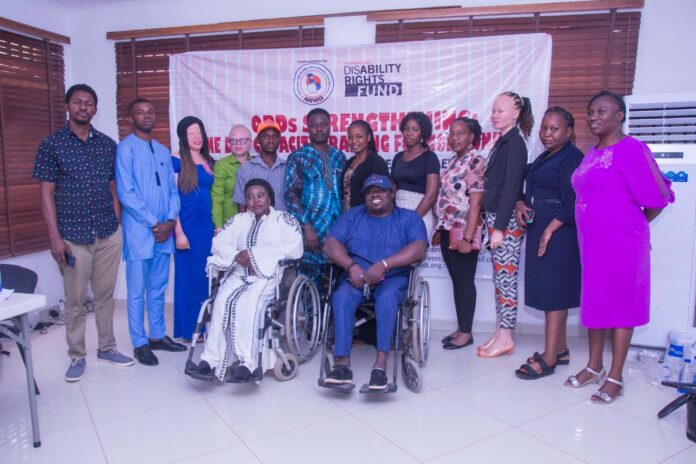Advocacy for women with disabilities Initiative (AWWDI) has engaged Organizations of Persons With Disabilites (OPDs) for policies inclusion on
GBV against Women With Disabilites (WGWDs).
In an event organized by the association in Abuja on Wednesday to engage OPDs for inclusion of strategies on policies on GBV against WGWDs, Kola Oledeyoba, the program manager in his brief introduction about the project, said that they identified gaps in the implementation of the existing policies affecting PWDs as well as areas concerning PWDs that there is policy gap.
Speaking further, he said that it is because of the above reasons, they approached Disability Rights Fund (DRF) who supported the project to strengthen OPDs to engage for full implementation of the existing policies to reduce GBV against WGWDs.
He informed that there has been findings on the existing laws and policies of selected MDAs and going forward in the course of the project, they will be tracking the progress of the implementation by different MDAs with the view of getting them to improve through advocacy.
Mr. Kola described the association to be focusing on bringing women with disabilities of different clusters together with the aim of improving their quality of life, for respect and dignity through advocacy.
He said that at the moment, they have over 1200 women in sixty-two (62) SelfHelp Groups (SHGs) across twenty-two (22) states in Nigeria.
The Executive Director of AWWDI, Patience Dickson while presenting a topic on strengthening of OPDs on policies inclusion for women with disabilites urged women with disabilites to be intentional in building their capacity on the relevant policies and laws concerning women with disabilites so that they can become great advocates to push the agenda of Women With Disabilites forward.
She spoke on the national and international laws/ frameworks protecting the rights of women and girls with disabilites. Some of the notable laws, polices and guidelines she mentioned are; Constitution of Federal Republic ( fundamental human Rights), Discrimination against Persons With Disabilites ( Prohibition)Act, Violence Against Persons Prohibition Act, National Gender Policy, National Human Rights Act, National Policy on Sexual and Reproductive Health Rights with emphasis on women and girls with disabilites, African Charter on Human and People’s Rights, UNCRPD and many more.
After explaining some of these laws and policies pertaining women and girls with disabilites, Mrs Dickson made some recommendations such as:
1. Train law enforcement, the judiciary, and other actors involved in the administration of justice to handle cases concerning women with disabilites and to dismantle harmful stereotypes about credibility or capacity.
- Train lawyers to provide women with disabilites with effective legal representation. For instance, including women’s rights and disability rights in law school curricula and continuing legal education program.
- Ensure that women with disabilites are not subjected to forced institutionalization and there are effective legal channels for those who are institutionalized to challenge their institutionalization and to report human rights violation committed against them within institutions


